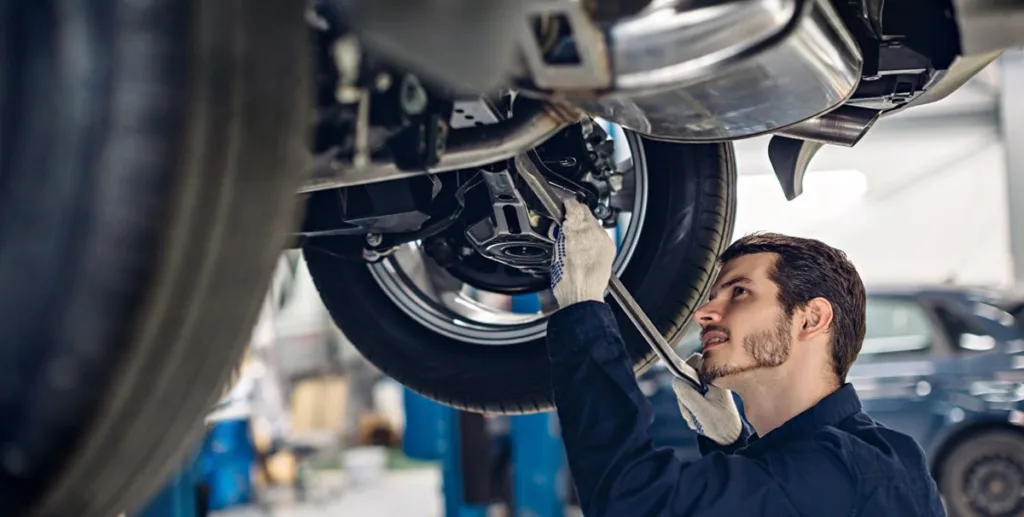All Categories
Featured
Regular car upkeep is crucial for guaranteeing that your lorry runs efficiently and efficiently. While many drivers understand the significance of vehicle servicing, there's frequently confusion about exactly how frequently this must occur. The response isn't always uncomplicated as it relies on several variables including your auto's make and design, how often you drive, and your driving practices. However, there are basic standards to assist you stay on track with your lorry's maintenance demands.
The Standard Guideline: Every 12,000 to 15,000 Miles or twelve month
One of one of the most common suggestions is to service your auto every 12,000 to 15,000 miles, or at least once a year. This is usually when necessary solutions, such as oil changes, air filter replacements, and tire rotations, must occur. These services are necessary to preserve your cars and truck's engine health and protect against unnecessary wear and tear.
Oil adjustments are among the most crucial facets of auto upkeep. The oil in your engine assists to oil the relocating components, minimize friction, and stop getting too hot. Over time, oil can become infected and shed its effectiveness. Regular oil modifications guarantee that your engine runs efficiently and prevents costly repairs down the line. Some modern-day vehicles use artificial oils, which might prolong the time between oil adjustments, but it's still important to adhere to the manufacturer's recommendations.

The Value of Seasonal Checks
Along with the typical yearly solution, seasonal checks are also vital to ensure your car awaits the altering climate condition. Prior to wintertime sets in, have your automobile inspected to make certain the heating unit, defroster, and battery are in good condition. In cooler months, roads can end up being slippery, and having tires with appropriate step and inflated to the appropriate pressure is vital. A winter season solution might consist of inspecting the brakes, antifreeze degrees, and replacing the windshield wipers to handle any snow or ice build-up.
Similarly, before summer rolls about, it is necessary to check the a/c system, radiator, and tires to make certain that your automobile can handle the warmth. High temperature levels can place a pressure on your engine, and resolving prospective issues before they arise can conserve you from break downs throughout the most popular months.
Driving Practices and Special Problems
Some driving behaviors or conditions might call for more regular maintenance. If you frequently drive in hefty web traffic, take long roadway journeys, or live in a region with severe temperature levels, your car might need even more constant inspections. Likewise, if you commonly bring hefty lots or tow trailers, these activities can place additional tension on your car, making it needed to service it more frequently.
In addition, if you're an efficiency lorry owner or have a deluxe auto, it is necessary to comply with the supplier's maintenance schedule very closely. High-performance engines might require even more regular maintenance to make sure peak efficiency and reliability.
Final Thought: A Little Maintenance Goes a Long Means
The regularity of car servicing ultimately depends on a selection of variables, yet complying with the general guideline of servicing every 12,000 to 15,000 miles or annually is a great starting point. Bear in mind to pay focus to seasonal demands and your driving behaviors, as these can affect exactly how usually your cars and truck requires upkeep. Regular maintenance not just helps maintain your car running efficiently however can additionally protect against expensive repairs and enhance its lifespan. Constantly consult your vehicle's owner handbook and a relied on technician to establish the most effective solution timetable for your lorry's demands.
Latest Posts
Discover Budget-Friendly Auto Repairs with Montclare’s Exclusive Service Specials
Learn About Brake Repair & More: Comprehensive Auto Care Solutions from Montclare Auto Repair
Why Routine Vehicle Maintenance at Montclare Auto Repair Saves You Money
More
Latest Posts
Discover Budget-Friendly Auto Repairs with Montclare’s Exclusive Service Specials
Learn About Brake Repair & More: Comprehensive Auto Care Solutions from Montclare Auto Repair
Why Routine Vehicle Maintenance at Montclare Auto Repair Saves You Money